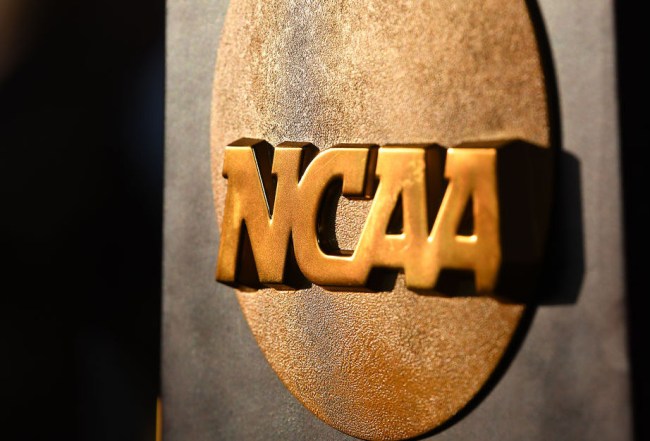
Getty Image
When I was in sixth grade, I wrote a paper for my English class explaining why college athletes should be paid and I like to think I was pretty ahead of the curve compared to the people with more influence than most middle schoolers possess who’ve only recently started to advocate for the same position.
It’s been close to a year since California passed a law that will permit student-athletes who go to college in the state to capitalize on their name, image, and likeness beginning in 2023 and Florida pulled some classic one-upmanship back in March with similar legislation that will go into effect next July. Colorado also got in on the action shortly after and other proposals are currently making their way through statehouses around the country as the NCAA scrambles to change its current policy after realizing the inevitable moment it’s spent decades fearing has likely arrived.
On Thursday, some senators at the federal level also decided to join the party after a group led by Cory Booker and Richard Blumenthal introduced a list of proposals they’re describing as a “bill of rights” for student-athletes. The document addresses a variety of issues that have gotten some attention in recent weeks after hundreds of college football players in the Pac-12 realized they might be able to use collective bargaining to their advantage, a development that put the fear of God into athletic directors who were dreading the day athletes discovered a tactic that took longer for them to harness than it probably should’ve.
(2of2) “You potentially lose one season with the virus. You lose the entire framework of your mission statement with players organizing. They need time to figure out how to attack it.”
— Matt Hayes (@MattHayesCFB) August 8, 2020
Allowing players to profit from their NIL is a primary focus of the bill but it also includes a push to eliminate rules requiring athletes to sit out for a season after transferring unless they obtain a waiver, establish “lifetime scholarships” that would allow them to finish their education after exhausting their eligibility, and increase access to healthcare to treat issues stemming from their participation in college athletics, the last of which seems especially overlooked when you consider the long-term impact injuries can have that many players can’t afford to address once they graduate.
There will obviously be people who disagree with these proposals (especially when you consider nine of the ten senators who’ve officially endorsed the bill are Democrats and the other one is Bernie Sanders) but Chris Murphy argues there shouldn’t be anything particularly controversial about it, saying:
“We can’t return to business as usual—where a multi-billion dollar industry lines the pockets of predominately white executives all while majority-Black athletes can’t profit from their labor.
This isn’t radical thinking—it’s just the right thing to do.”
However, there has already been bipartisan support to change some of the policies the group is addressing and Republican Anthony Gonzalez—who played football at Ohio State—says he’s been working on legislation he plans to unveil in the House fairly soon. It turns out he’s not the only former student-athlete in Congress, as Booker played football at Stanford while obtaining his political science degree.
The New Jersey senator acknowledges the NCAA would obviously prefer to handle these issues without the federal government getting involved but feels this is a necessary step based on the glacial rate at which the organization has dragged its feet when it comes to addressing problems that have been raised for years:“This is an opportunity now for the federal government to act, for Congress to act, to make sure that there are certain basic rights that every athlete has, that will protect their health, protect their well-being, that will protect their achievement of an education, and address other issues of exploitation that continue.”
When you consider the undesirable situation players have found themselves in as the result of the pandemic, there’s no doubt they would benefit from these changes, and while they might sound good in theory, there’s approximately zero chance they’ll be instituted within the coming months. However, that’s not really an excuse to not fight for a long-term plan that could reward future student-athletes and, more importantly, potentially bring back the NCAA Football video game franchise.